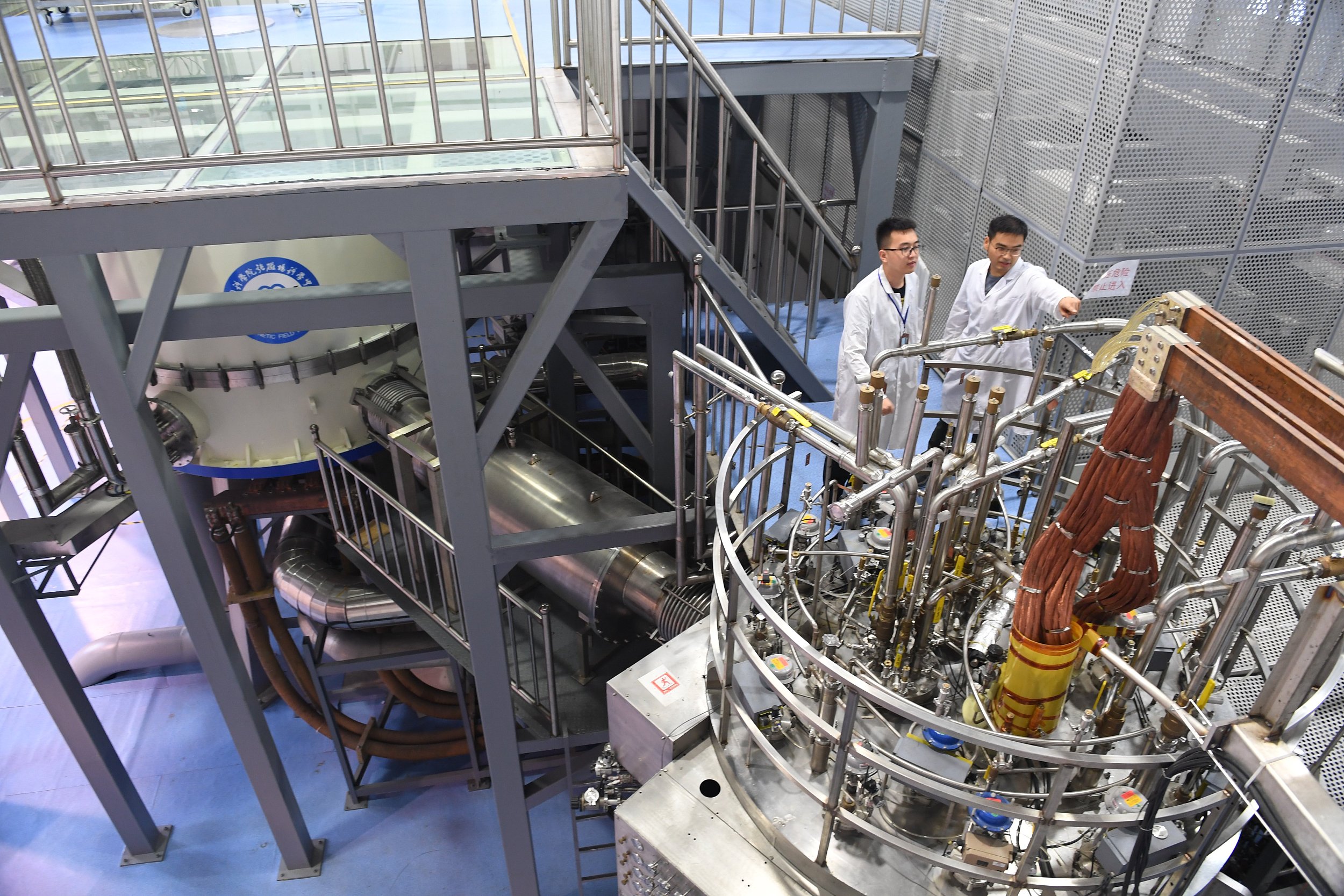China's SHMFF Breaks Records and Pushes Boundaries
 ?
?
By HONG Jingpu, WU Changfeng & LIANG Yilian
Researchers have taken a giant leap forward in their research under high magnetic fields. Made possible by a recent collaboration between the High Magnetic Field Laboratory, Hefei Institutes of Physical Science (HFIPS), under the Chinese Academy of Sciences, and the University of Science and Technology of China, the research relied heavily on China’s Steady High Magnetic Field Facility (SHMFF). The researchers proposed the concept of Topological Kerr Effect, and the results were published online on April 4, 2024 in Nature Physics.
This accomplishment stands as another testament to the capabilities of SHMFF. But what exactly is SHMFF, and what challenges did it confront during its construction?
Cutting-edge research platform
A high magnetic field is an essential extreme experimental condition for frontier scientific research. When a substance is in a high magnetic field, its internal structure may change, thus showing new physical and chemical characteristics. The application of a high magnetic field covers material science, physics, chemistry, and life science, etc. Usually, the higher the magnetic field, the more the opportunities to new discoveries. According to its duration, the high magnetic field is divided into pulsed and steady-state high magnetic fields. The steady-state high magnetic field can be made to remain stable for the time and value needed by the scientific experiments.
SHMFF consists of 10 magnets, including five water-cooled magnets, four superconducting magnets and one hybrid magnet. In August 2022, Chinese scientists produced a steady field of 452,200 gauss, or 45.22 Tesla, beating the previous world record set nearly 23 years ago to become the highest steady magnetic field by a working magnet.
"As the fifth steady-state high magnetic field experimental device in the world, and the first in China, it provides a cutting-edge research platform for researchers," said Kuang Guangli, academic director of the laboratory.
Unique challenges
Constructing such a groundbreaking facility wasn’t without its challenges. "The water-cooled magnets in SHMFF are made with specially designed 'bitter discs," said Zhang Jun, deputy director of the science and technology department of the laboratory.
The bitter disc is densely covered with tiny holes to allow deionized cooling water to flow through it. Therefore, it must be accurately placed, otherwise the blockage of the cooling hole will cause the water-cooled magnet to fail to dissipate heat in time, which is easy to cause the entire magnet to burn, according to Zhang.
"To figure out what materials to use and how much aperture to open, we had to carry out theoretical analysis and simulation, and then start construction," said Fang Zhen, a researcher in the laboratory recalled the challenges during formation process.
One example is that the required "copper-silver alloy" material was extremely scarce at that time, and much effort was used to obtain this material.
"Every step was difficult, and the development of the measurement system was even more so," said Kuang. "To achieve the ability to sift out weak useful information from the complex electromagnetic environment in which the magnet operates, is like looking for a needle in a haystack."
Open to the world
Over the past 100 years, more than 10 Nobel Prizes have been awarded for the researches related to high magnetic fields. Besides China, the United States, France, the Netherlands and Japan have built steady-state high magnetic field experimental devices.
"Researchers from about 70 institutions with more than 100 projects carried out their experiments here every year, from 8 am to 12 pm," said Xi Chuanying, deputy director of Operation and Experimental Measurement Department of the laboratory.
SHMFF is open to scientists worldwide. By the end of 2023, it had provided over 200 scientific and educational institutions at home and abroad with the experimental conditions for cutting-edge research in multiple disciplines, including physics, chemistry, materials, life sciences and engineering, helping to produce nearly 2,500 research papers.






